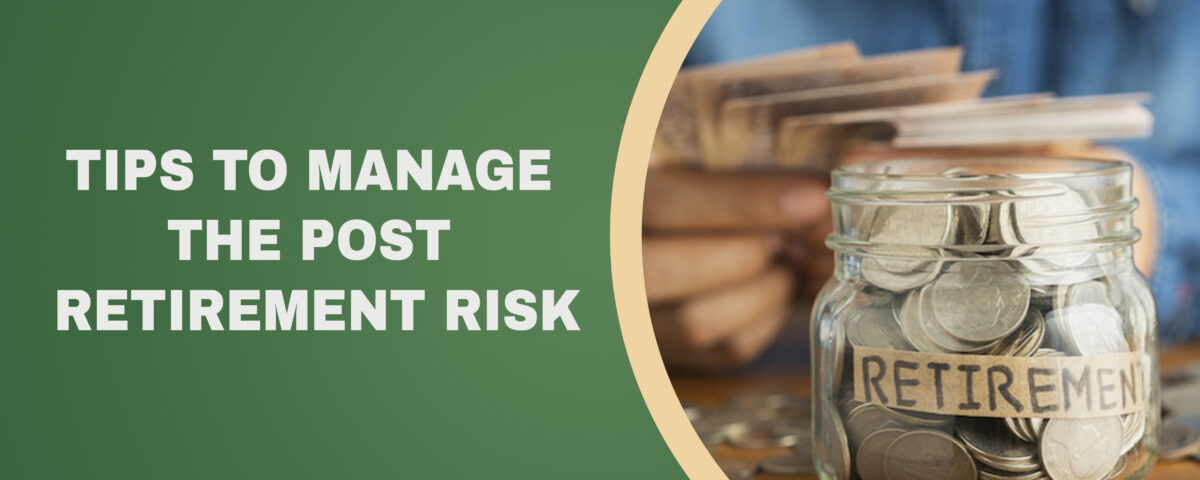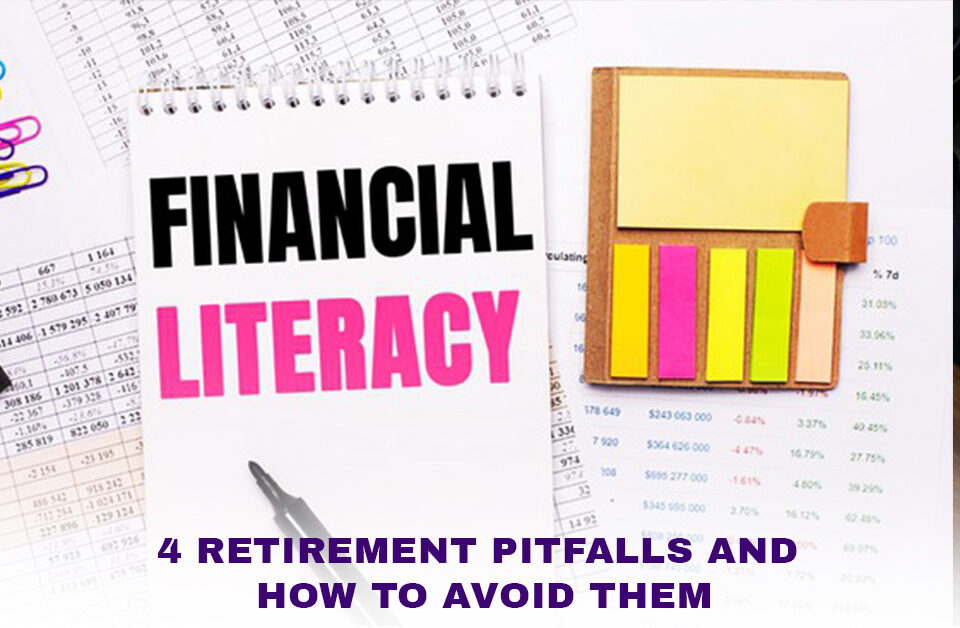Tips to Manage the Post Retirement Risk

4 Retirement Pitfalls and How to Avoid Them
November 15, 2021Often, it’s seen that people come across financial difficulty in their retirement because of a mismatch in their post-retirement earnings and expenditures. Sometimes their retirement savings become insufficient to create the sort of income they require to fulfill their post-retirement expenditures. Some of the biggest risks after retirement are unforeseen sickness in the household, an increase in life expectancy, and rising inflation. Nonetheless, these risks can be managed by the right planning before your retirement. Here are a few things if you are on the verge of retirement should do to make sure you have a worry-free retirement.
Weigh your financial readiness:
If you are going to retire at the age of sixty, then by 54 you should weigh your financial readiness for retirement. This can be done by preparing a budget within which you’ll live in retirement. It’s wise to have this evaluation at this stage as you can take remedial measures if required. At this stage, you’ll have a reasonable idea about your post-retirement earning. If you discover that your after-retirement earning will not be adequate to fulfill your post-retirement expenditures you can explore options such as delaying your retirement or accompanying retirement earning with some post-retirement employment or may consider cutting some of the expenditures to match it with your income after retirement.
Purchase health insurance:
Have a solid health insurance cover during your young & healthy years when you’re earning. This insurance will help you even in your after-retirement years.
Persistent illnesses, unforeseen hospitalization may exhaust your retirement savings and are some of the biggest risks during your retirement. In order to make sure that you don’t need to depend heavily on your retirement savings for medical expenditures, you must have a solid health insurance cover during your young & healthy years when you’re earning.
Get rid of debt:
Yet another most important thing that people on the verge of retirement must do is to try and repay all their debt prior to retirement. It’s never recommended to carry forward your debt post-retirement. Make sure that your house loan, if any, is totally paid off prior to your retirement.
Conclusion:
Some people are more vulnerable to post-retirement risks than others. Post-retirement risks threaten your financial security after you leave the workforce. Though there is no one-size fit strategy, the above-mentioned strategies will surely help you minimize these risks to a great extent.
Disclaimer: The information in this commentary is for informational purposes only and is not meant to be personalized investment advice. Please contact your investment professional for investment advice and before investing in any product. ACPI does not publish market research and Sunil Chugh is not registered as a research analyst. The content is from sources believed to be accurate and the opinions expressed are those of the author and do not necessarily represent those of ACPI


